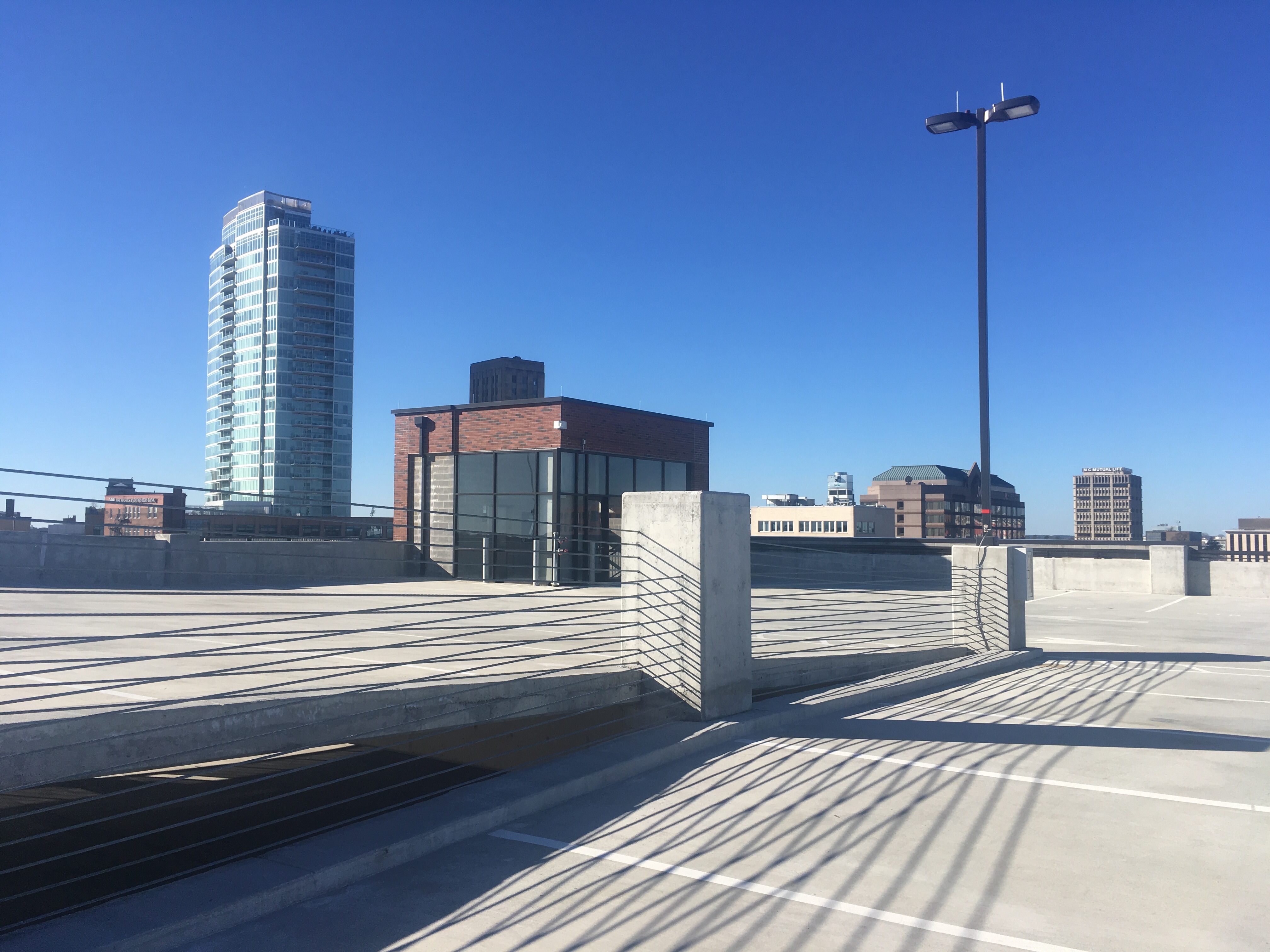Sunday, 10:00 a.m. Sunny.
Total cars in deck: 22.
In hourly spaces: 13.
No cars on Level 7:



The day after Christmas was unusually warm, and I had some time on my hands, so I went up to the roof, Level 7, with something to read. I made myself comfortable on a ledge that probably wasn’t intended for people to sit on but makes a good bench nonetheless and affords a panoramic view north from downtown. The deck wasn’t designed as a recreational space, of course, and it is almost entirely concrete, although its ostensible pure functionality is betrayed by some surprising aesthetic aspects; but because it is virtually never used for its designated purpose, parking — more on that below — it provides an openness and serenity of the sort central Durham lacks. It is a very pleasant urban retreat.
After I’d been reading for about two hours, a guard wearing an Allied Security jacket — Allied is the private company contracted by the City of Durham to patrol its parking garages — emerged from one of the elevators, walked unhurriedly over to where I was sitting, and told me I had to leave.
Continue reading Parking Spaces #89: Eviction, Conclusion, Proposal.